Despite the increasing awareness of the importance of leadership in healthcare, our understanding of the competencies and skills of leadership remains limited. Leadership skills are often overlooked in medical school, but are required from any leaders in medical field. The major impact on clinical outcomes in patients, improved provider well-being and reduced burnout rate all underline the importance of leadership skills.
Leadership plays a critical role in ensuring patient safety in healthcare organizations. Effective leaders create and sustain a culture of safety, where all members of the organization are empowered to identify and report potential safety issues and work collaboratively to implement solutions.
In general, leadership is the ability to inspire and guide people towards a common goal. It depends on fundamental skills and qualities to motivate, empower, and organize a team to achieve their goals.
Highly effective leaders have a variety of skills and core competencies, including:
- Communication skills: They can clearly and effectively communicate their vision and goals to their team.
- Decision-making skills: They can make difficult decisions quickly and with confidence.
- Strategic thinking: They can anticipate potential obstacles and develop plans to overcome them.
- Emotional intelligence: They are aware of their own emotions and can understand and empathize with the emotions of others.
- Integrity: They are honest, transparent, and ethical in their actions and decisions.
- Accountability: They take responsibility for their actions and hold themselves and their team accountable for achieving their goals.
- Adaptability: They can adjust to changing circumstances and make necessary changes to their plans.
- Empathy: They can put themselves in the shoes of others and understand their perspectives.
- Vision: They have a clear and compelling vision for the future that motivates and inspires their team.
In other words, leadership is not about having authority or power; it is rather about using that power to serve and empower others. A good leader can inspire and motivate a team to achieve great things, and leave a lasting positive impact on the people they lead.
Leadership plays a crucial role in medical teams as it helps to create a sense of direction, coordination, and motivation among the team members. Here are some ways to use leadership in medical teams:
- Set a clear vision and mission: A good leader sets a clear vision and mission for the medical team. This helps team members understand the purpose of their work and motivates them to work towards a common goal.
- Establish effective communication: Effective communication is essential for the success of any medical team. A good leader ensures that all team members communicate effectively, listen actively, and provide feedback to each other.
- Encourage collaboration and teamwork: A good leader encourages collaboration and teamwork among team members. This promotes a positive work environment and helps to improve the quality of care provided to patients.
- Foster a culture of continuous learning: A good leader promotes a culture of continuous learning and encourages team members to engage in professional development activities. This helps team members to stay up-to-date with the latest medical knowledge and advances in healthcare.
- Recognize and reward achievements: A good leader recognizes and rewards team members for their achievements. This helps to boost morale and motivation among team members, which ultimately leads to better patient outcomes.
- Lead by example: A good leader leads by example and sets a positive tone for the team. They demonstrate a strong work ethic, ethical behavior, and a commitment to patient care, which inspires and motivates team members to do the same.
Overall, effective leadership is essential for the success of medical teams, and leaders who prioritize vision, effective communication, teamwork, continuous learning, recognition, and leading by example are more likely to create a positive and productive work environment.
Development of leadership skills will help healthcare professionals to navigate team management and important decisions in emergencies. The SAFTEY project team acknowledged the gap in medical training regarding leadership education and aimed to develop training material that will help in the development of these essential leadership skills.
Written by Dr. Katarina Grujic, MD (on behalf of Team of LMU University Munich)
References:
- Tayne, Samantha MD, MBA1; Hutchinson, Mark R. MD1; O’Connor, Francis G. MD, MPH2; Taylor, Dean C. MD3; Musahl, Volker MD4; Indelicato, Peter MD5. Leadership for the Team Physician. Current Sports Medicine Reports 19(3):p 119-123, March 2020.
- Hargett CW, Doty JP, Hauck JN, Webb AM, Cook SH, Tsipis NE, Neumann JA, Andolsek KM, Taylor DC. Developing a model for effective leadership in healthcare: a concept mapping approach. J Healthc Leadersh. 2017 Aug 28;9:69-78



